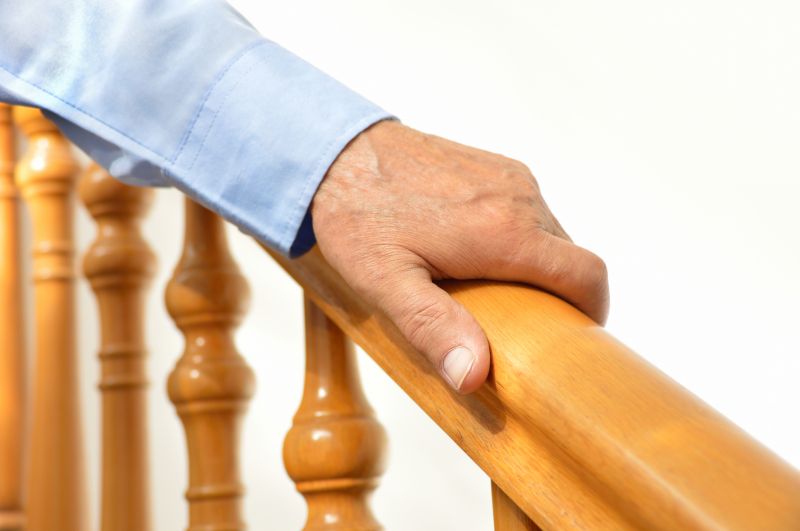Popular Choices For Custom Wood Handrail Installation Projects
Discover the most sought-after products that ensure a seamless and professional finish for your wood handrail setups.
 Custom wood handrails are essential components in both residential and commercial staircases, offering safety, support, and aesthetic appeal. Selecting the appropriate products for installation can significantly influence the overall look and functionality of a staircase. When planning a custom handrail project, it is important to consider various factors such as material compatibility, mounting options, and design preferences. High-quality components ensure durability and ease of installation, making the process smoother and the finished product more reliable.
Custom wood handrails are essential components in both residential and commercial staircases, offering safety, support, and aesthetic appeal. Selecting the appropriate products for installation can significantly influence the overall look and functionality of a staircase. When planning a custom handrail project, it is important to consider various factors such as material compatibility, mounting options, and design preferences. High-quality components ensure durability and ease of installation, making the process smoother and the finished product more reliable.
Top Overall Option
Premium Wood Handrail Mounting Kit
This comprehensive mounting kit offers a versatile selection of brackets, supports, and connectors designed to accommodate various wood handrail profiles. Crafted for durability and ease of installation, it provides a reliable foundation for custom handrail projects. Its adaptable components make it suitable for different staircase configurations, ensuring a secure and professional finish.
Types of Products For Custom Wood Handrails Installations
Wall-Mounted Brackets
Supports handrails mounted directly to walls, available in various styles and finishes to match decor.
Surface Mount Brackets
Designed to attach directly to the surface of the handrail or stair stringer for a clean look.
Post Supports and Mounts
Provide stability by anchoring handrails to new or existing support posts.
Corner Brackets
Facilitate smooth transitions around stair corners or landings with specialized angled supports.
End Caps and Finials
Decorative and protective accessories for the ends of handrails, enhancing safety and aesthetics.
Adjustable Supports
Allow for fine-tuning the height and angle of the handrail for precise installation.
Decorative Brackets
Add stylistic accents to the handrail system, available in various designs.
Support Posts
Vertical elements that provide structural support for the handrail, often customizable in height and style.
Connecting Rods and Spindles
Assist in creating a cohesive and secure handrail system with added visual interest.
Mounting Plates
Provide a sturdy base for attaching brackets to different surfaces.
Hidden Mounting Hardware
Ensures a clean, unobtrusive appearance by concealing support hardware.
Customizable Support Kits
Allow for tailored configurations to fit unique staircase layouts.
Popular Choices
Widely used for their versatility and ease of installation across different wall types.
Commonly selected for their ability to provide strong, stable support for custom handrails.
Popular for creating seamless transitions around stair corners and landings.
Frequently chosen for finishing off the ends of handrails with a polished look.
Favored for their flexibility in achieving precise alignment during installation.
Selected for adding stylistic touches to complement various interior designs.
Popular for their strength and stability in supporting handrail systems.
Chosen for maintaining a clean appearance without visible mounting elements.
Trend towards incorporating these for added safety and aesthetic appeal.
Increasingly used for bespoke staircase projects requiring tailored solutions.
The process of installing a custom wood handrail involves selecting suitable mounting brackets, connectors, and support posts that match the style and dimensions of the wood material. Many products are designed to accommodate different handrail profiles and sizes, providing flexibility for unique staircase configurations. Additionally, finishing accessories like end caps, decorative brackets, and protective coatings can enhance the visual appeal and longevity of the handrail system.
A well-curated selection of installation products can help achieve a seamless integration with existing architectural elements. Whether aiming for a traditional, rustic, or modern look, there are numerous options available to customize the installation to personal taste and functional needs. Proper installation not only improves safety but also ensures the handrail remains sturdy and visually appealing over time. Investing in quality components and understanding the key considerations can lead to a successful and satisfying project outcome.
Key Buying Considerations
- Material compatibility with your existing or planned wood handrail, such as oak, maple, or pine.
- Type of mounting hardware suitable for your wall or staircase surface, including drywall, concrete, or wood framing.
- Support strength and load capacity to ensure safety and durability over time.
- Design and finish options to match or complement your staircase style and decor.
- Ease of installation, considering whether the hardware includes detailed instructions or requires specialized tools.
- Adjustability features that allow for precise alignment and leveling during installation.
- Corrosion resistance, especially in humid environments or outdoor settings.
- Compatibility with various handrail profiles and sizes for a seamless fit.
- Availability of decorative elements that can enhance aesthetic appeal.
- Cost-effectiveness and value for the quality and features offered.
- Brand reputation and customer reviews to gauge reliability and satisfaction.
- Warranty or guarantee options for peace of mind post-installation.
- Compatibility with additional accessories such as end caps, finials, or support spindles.
- Installation complexity, especially for DIY projects versus professional installation services.
- Compliance with local building codes and safety standards.
